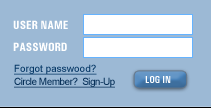 |
 |
 |
ADHD - Diagnosis
Is It Really ADHD?
Not everyone who is overly hyperactive, inattentive, or impulsive has ADHD. Since most people sometimes blurt out things they didn't mean to say, or jump from one task to another, or become disorganized and forgetful, how can specialists tell if the problem is ADHD?
Because everyone shows some of these behaviors at times, the diagnosis requires that such behavior be demonstrated to a degree that is inappropriate for the person's age. The diagnostic guidelines also contain specific requirements for determining when the symptoms indicate ADHD. The behaviors must appear early in life, before age 7, and continue for at least 6 months. Above all, the behaviors must create a real handicap in at least two areas of a person's life such as in the schoolroom, on the playground, at home, in the community, or in social settings. So someone who shows some symptoms but whose schoolwork or friendships are not impaired by these behaviors would not be diagnosed with ADHD. Nor would a child who seems overly active on the playground but functions well elsewhere receive an ADHD diagnosis.
To assess whether a child has ADHD, specialists consider several critical questions: Are these behaviors excessive, long-term, and pervasive? That is, do they occur more often than in other children the same age? Are they a continuous problem, not just a response to a temporary situation? Do the behaviors occur in several settings or only in one specific place like the playground or in the schoolroom? The person's pattern of behavior is compared against a set of criteria and characteristics of the disorder as listed in the DSM-IV-TR.
Diagnosis
Some parents see signs of inattention, hyperactivity, and impulsivity in their toddler long before the child enters school. The child may lose interest in playing a game or watching a TV show, or may run around completely out of control. But because children mature at different rates and are very different in personality, temperament, and energy levels, it's useful to get an expert's opinion of whether the behavior is appropriate for the child's age. Parents can ask their child's pediatrician, or a child psychologist or psychiatrist, to assess whether their toddler has an attention deficit hyperactivity disorder or is, more likely at this age, just immature or unusually exuberant.
ADHD may be suspected by a parent or caretaker or may go unnoticed until the child runs into problems at school. Given that ADHD tends to affect functioning most strongly in school, sometimes the teacher is the first to recognize that a child is hyperactive or inattentive and may point it out to the parents and/or consult with the school psychologist. Because teachers work with many children, they come to know how "average" children behave in learning situations that require attention and self-control. However, teachers sometimes fail to notice the needs of children who may be more inattentive and passive yet who are quiet and cooperative, such as those with the predominantly inattentive form of ADHD.
(NIMH)
ADHD Topics:
What Is It, Symptoms, Diagnosis, Who Diagnoses it, Causes, Related Conditions, Treatment, Therapy, Medication, School, Teenagers, and Adults.


